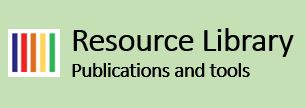Youth Support Fishermen in Accessing Maritime Weather Forecast - Indonesia
Abstract:
These are the everyday questions that face all inshore fishermen preparing to put to sea in small boats. What is the wind going to do? How high will the waves be? And where would be the best spot for fishing?
Knowledge of seasons at sea and fishery locations is very helpful in determining the right time to go to sea and to get good fishing results. However, climate change is affecting the current season patterns in the oceans. In certain months, the waves and winds were usually good for going to sea, namely the east wind season (or in other terms in a number of places in Indonesia), in fact, high waves and strong winds are often experienced. A number of certain fish are known to appear mostly in shallow waters during certain monsoons while in other seasons they are far out at sea and rarely found. The seasonal pattern-especially during transition of seasons - that is not exactly the same makes it difficult for fishermen to predict the condition of the waters, the location and the types of fish that will be encountered at sea.
The Indonesian Meteorological, Climatological and Geophysical Agency (BMKG) produces detailed, colour-coded chart information on weather and wave height that’s updated daily. A Ministry of Marine Affairs and Fisheries (MMAF) website, meanwhile, now updates online information about potential fishing ground three times a week. However, most of traditional fishermen are not familiar in accessing online digital information. The two-day training was provided by the Red-Cross Climate Center in Indonesia to the Indonesian Red Cross and other humanitarian partners in several fishing settlement locations. Youth and women from fishing families were involved in equal numbers with fishermen participants. Most youths are already familiar with online digital information. The involvement of youths helps fishermen to become more proficient in accessing information from websites and applications, while at the same time youths also begin to understand the conditions and risks experienced by their family members. A Whats-App Group in training location was established after the training to improve their skill in accessing and understanding the information and long-term communication channel. This kind of “buddy” approach deserves to be replicated in livelihood activities, not limited to weather information and fisheries, which require online access to digital information that the older generation is not familiar with.
Speaker(s):
- P. Raja Siregar, Red-Cross and Red-Crescent Climate Centre
Time Slot: 14:15 - 14:30 CET
Language: English
Meetinr recording: https://careinternational.zoom.us/rec/share/HO15ySc29NC4oWJ-pxb-mYPIIbdzXaQ_0CrZ62SPJAz1Ax-UbmaqYc6Y9pbxWnJS.j0pigFw6K-9EMWAV - Access Passcode: 6+e&h3zv
Programmes
- Dialogue and Dissent Strengthening the capacity of civil society to engage in dialogues with stakeholders for improved disaster risk reduction policies, practices, and investments.
Read more - Up-scaling Eco-DRR Increasing communities resilience and reducing disaster risks through ecosystem-based solutions.
Read more





